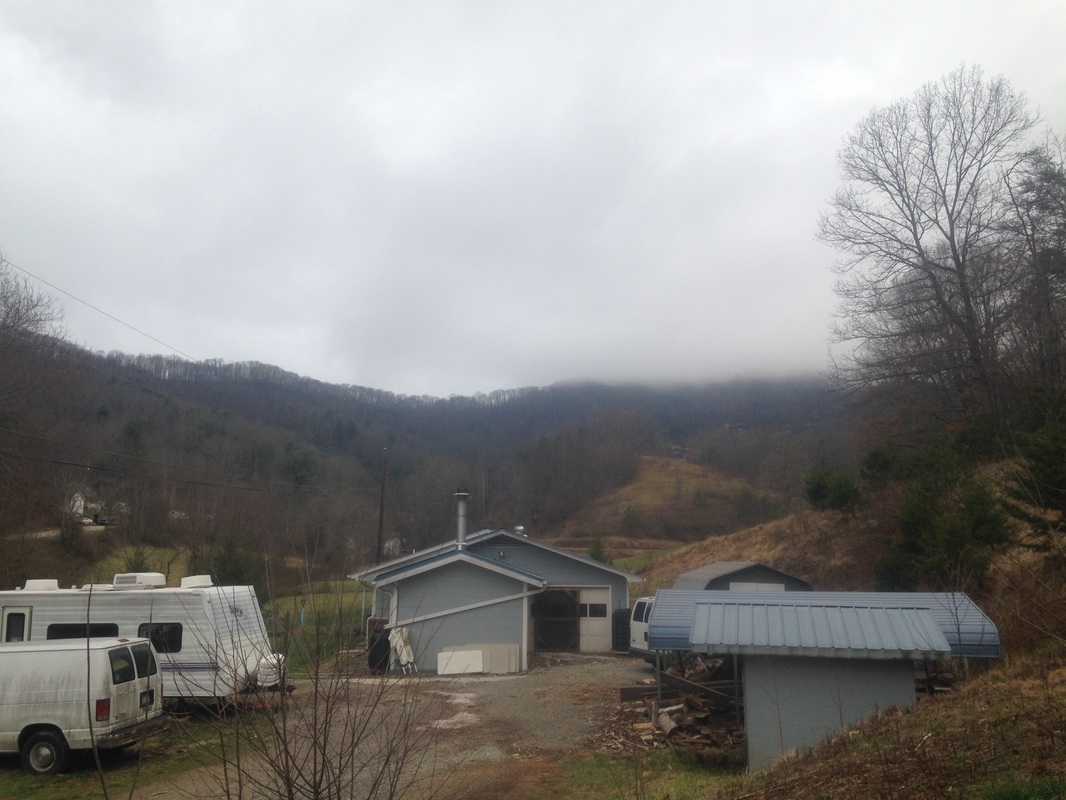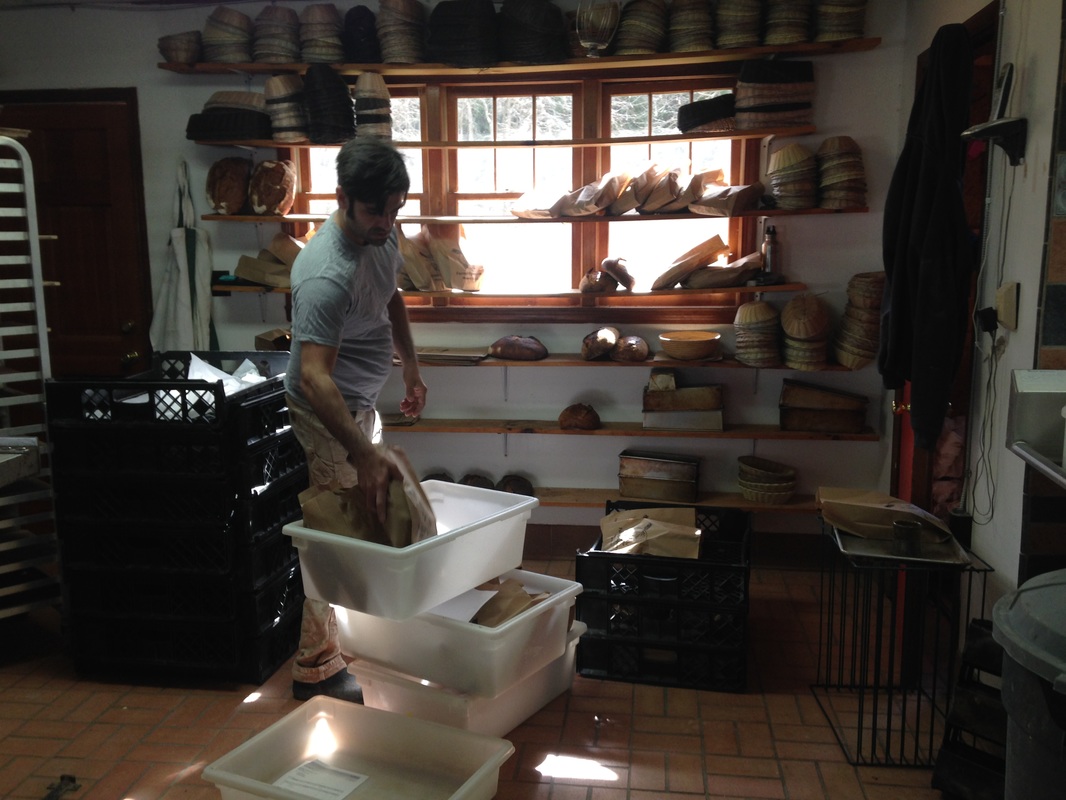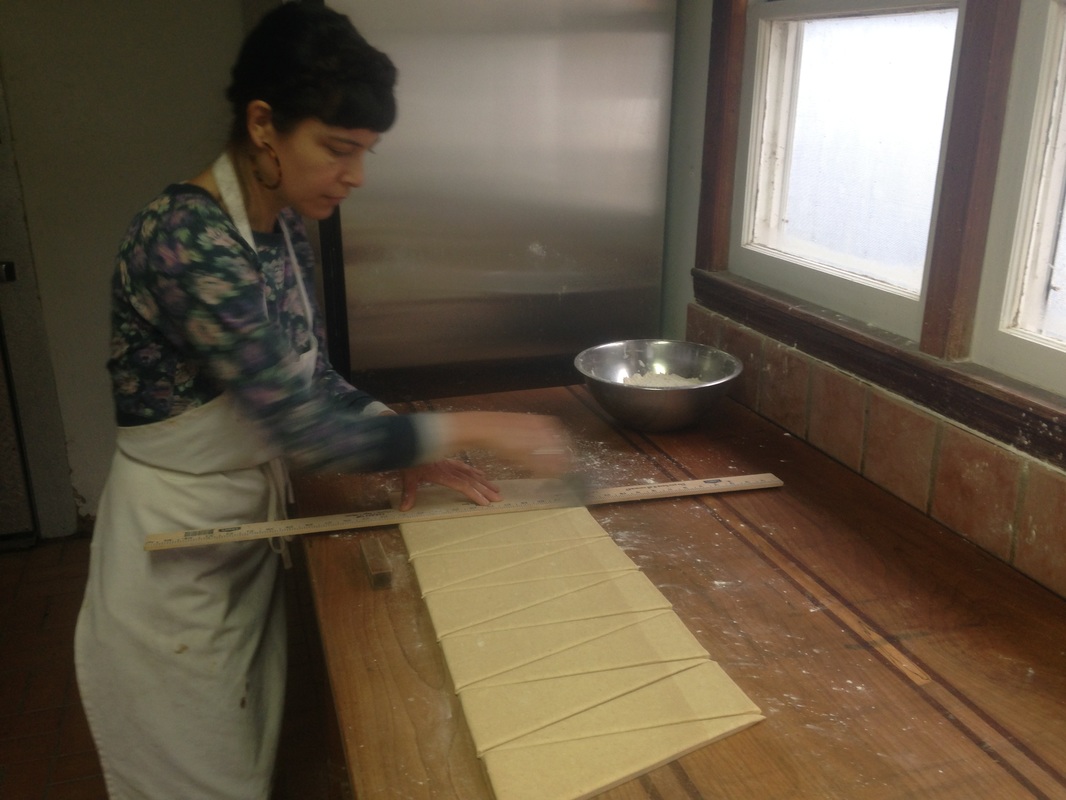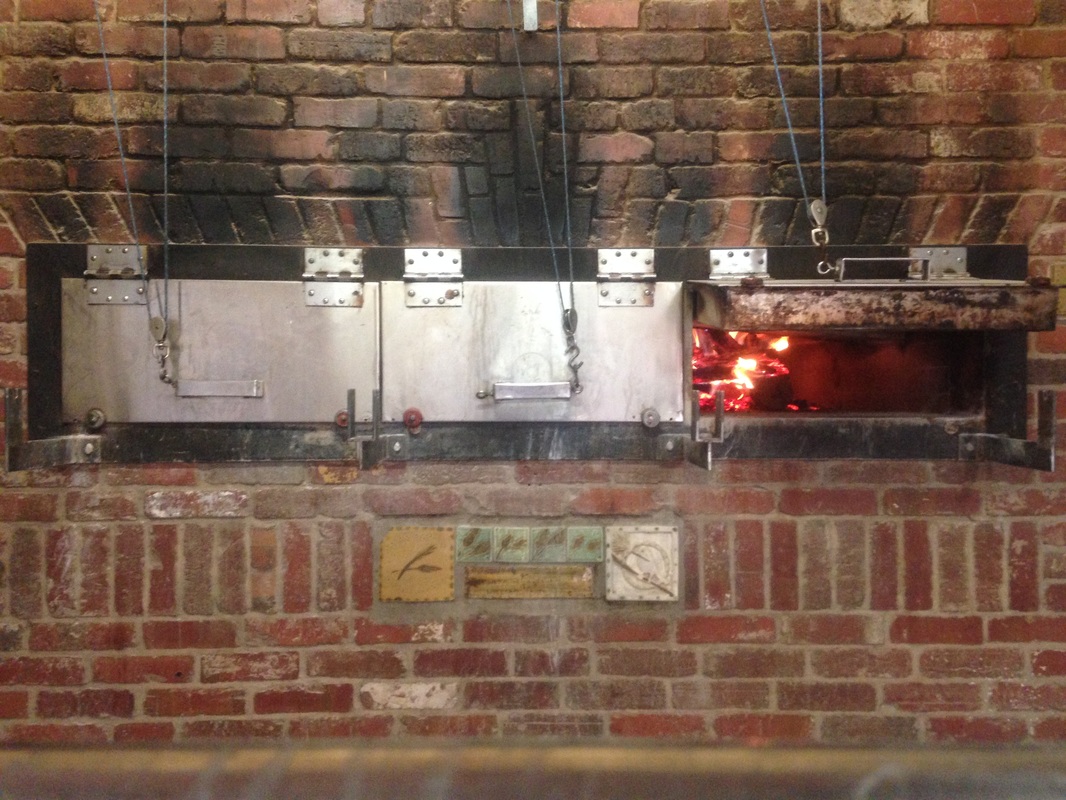|
Well, I made it to North Carolina, though there were moments on the ride up from Greenville, SC, last week when I was tempted to wander off a little ways into the woods, pitch my tent between the oaks and rhododendrons, and sleep away the day. Instead, I made up for my red eye flight by stopping for frequent roadside power naps and snack breaks. It was a slow ride, and the stars were bright overhead before I rolled up the last winding road, swallowed three quesadillas (nearly) whole, awkwardly danced out the pain of my thawing fingers and toes, crawled into my sleeping bag, and went immediately to sleep. Farm & Sparrow, the first bakery on this month long North Carolina bike tour, is tucked in the hills west of Asheville. There's a shed turned mill house, with an old Osttiroler for corn, and a new mill built by one of the boys from Boulted Bread for wheat and rye. The bakery, built into, and dominating most of the house, is mellow this time of year, with room enough for a visitor to hang around and (mis)handle some bread. They have a beautiful wood fired oven by the (now defunct) Turtlerock Masonry, with a genius three part door that allows them to use a loader, the canvas belt that can fill an oven more quickly and efficiently than a peel, minimizing the loss of heat and steam. Should I ever decide to build a commercial wood fired oven, this would be a design worth copying. But the best part of Farm & Sparrow is its focus on grains. That might sound obvious--baking is all about grain--but even deep in the artisan bread movement, most bakeries are still hopelessly entangled with the commodity grain market and industrial mills. The point, for most, is still what you do with the flour, not the flour itself. To make the flour, or the grain, the point means stepping out of the established food system. It means that Dave, the owner, spends an enormous amount of time finding wheats and maizes historically grown in the region, or new varieties well suited to it, and contracting farmers to grow them. The work of building a local grain economy is further complicated by the fact that the South's red dirt is already low yielding compared to our northern, glacially enriched soil, and heirloom grains are generally less productive than their modern commercial counterparts. It's a serious commitment to use locally grown grains that might yield 20 bushels / acre, compared to the 50-100 bushels / acre yields of imported commodity grains. Add to that the time and complexity of storing, milling, and sifting those beautiful grains to make flavorful, fresh flour, and it's astonishing Dave makes it into the bakery at all. Someday, when I master baking (ha!), perhaps I'll venture into milling. It would be an excellent challenge: learning a new craft, relearning baking with fresh flour, and connecting more actively to our local food system. For now, though, I'm gratefulKevin is milling Washington wheat just down the road.
Until soon! Sophie Comments are closed.
|
BY SUBJECT
All
|




